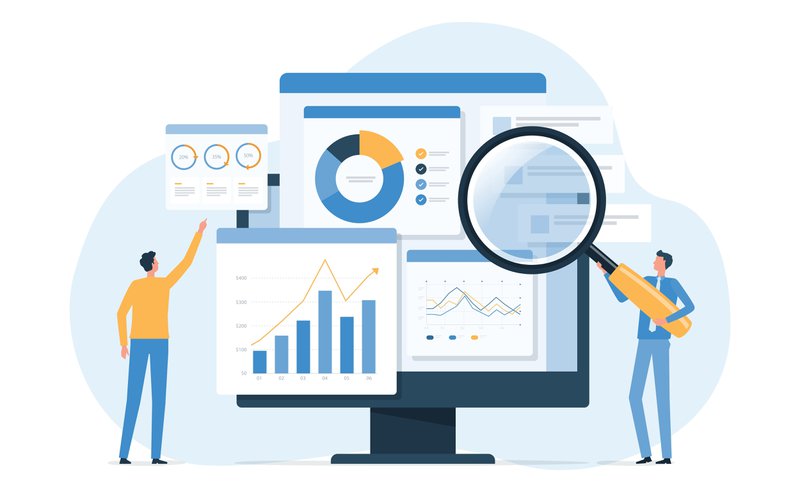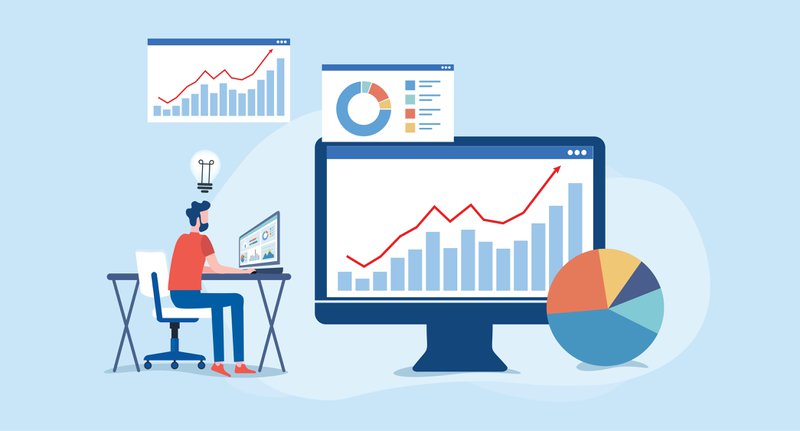The ability to make swift, informed decisions can mean the difference between seizing an opportunity and watching it slip away. With the right financial management software, agencies can shift from a reactive stance, where they scramble to fix problems after they arise, to a proactive approach that anticipates challenges and maximizes profitability.
It's time to embrace a new era of financial transparency that empowers leaders and teams alike. Let's explore how Accountability can illuminate the path to success, one data point at a time.
How Accountability Provides Real-Time Insights
Agencies that leverage immediate insights through effective financial management software—like Accountability—can make informed decisions, optimize resources, and ultimately drive profitability. Below, we explore Accountability’s essential components that contribute to this dynamic financial visibility.
1) Dynamic Dashboards
Dynamic dashboards serve as the nerve center for financial oversight. They provide an always-on view of key performance indicators (KPIs), allowing agency leaders to monitor financial health at a glance.
- Customizable Views: Dashboards can be tailored to display metrics that matter most to your agency, such as revenue, expenses, and profit margins.
- Real-Time Updates: With live data feeds, dashboards reflect the latest financial information, ensuring that decisions are based on current realities rather than outdated reports.
- User-Friendly Interface: A well-designed dashboard is intuitive, making it easy for team members at all levels to access and interpret financial data.
By utilizing dynamic dashboards within financial management software, agencies can quickly identify trends, spot anomalies, and make proactive adjustments to their strategies.

2) Live Job Tracking
Live job tracking is another critical component that enhances financial visibility. This feature allows agencies to monitor the progress and profitability of ongoing projects in real time.
- Project Milestones: Track key milestones and deliverables to ensure that projects stay on schedule and within budget.
- Resource Allocation: Monitor how resources are being utilized across various jobs, enabling better allocation and minimizing waste.
- Profitability Analysis: Assess the profitability of each project as it progresses, allowing for timely interventions if a project is veering off course.
For example, if a marketing agency is running a campaign for a client, live job tracking can reveal whether the project is on budget and meeting its financial targets. If costs begin to exceed projections, the agency can take immediate action to rectify the situation. This level of visibility is made possible through robust financial management software that integrates seamlessly into daily workflows.
3) Immediate WIP Reports
Work-in-progress (WIP) reports are essential for staying updated on financial commitments. These reports provide a snapshot of all ongoing projects and their associated costs, helping agencies manage cash flow effectively.
- Current Financial Commitments: WIP reports detail what has been spent versus what is still outstanding, giving a clear picture of financial obligations.
- Forecasting: By analyzing WIP data, agencies can forecast future cash flow needs and make informed decisions about resource allocation.
- Client Billing: Immediate WIP reports facilitate timely invoicing, ensuring that clients are billed accurately and promptly.
For instance, an agency managing multiple client accounts can use WIP reports to identify which projects are nearing completion and prepare invoices accordingly, thus improving cash flow. By incorporating WIP reports into their financial management software, agencies gain a strategic advantage in managing both short-term and long-term financial goals.
4) Instant Budget Adjustments
The ability to make instant budget adjustments is crucial for avoiding overspending. Real-time financial data allows agencies to respond quickly to changing circumstances.
- Budget Monitoring: Continuous monitoring of budget utilization helps identify areas where spending may exceed planned amounts.
- Flexible Reallocation: If one project is under budget, funds can be reallocated to another project that may require additional resources.
- Scenario Planning: Agencies can run “what-if” scenarios to understand the financial impact of potential changes, enabling more strategic decision-making.

For example, if an agency realizes that a particular marketing campaign is underperforming, they can quickly adjust the budget to invest more in high-performing initiatives, ensuring optimal resource use. Financial management software empowers this level of agility by offering real-time insights and actionable data.
5) Faster Decision-Making
Finally, real-time financial insights empower agency leaders to make faster, more informed decisions. With accurate data at their fingertips, leaders can act swiftly to capitalize on opportunities or mitigate risks.
- Data-Driven Culture: Encouraging a culture that values data-driven decision-making leads to more strategic outcomes.
- Agility: The ability to pivot quickly in response to market changes or client needs is a significant competitive advantage.
- Collaboration: Real-time insights foster collaboration among teams, as everyone has access to the same information and can contribute to discussions.
For instance, if a new client opportunity arises, agency leaders can quickly assess available resources and financial implications, enabling them to make a timely decision on whether to pursue the project. With financial management software like Accountability, this process becomes streamlined and efficient, ensuring no opportunity is missed.
The Power of Real-Time Financial Insights
In today’s fast-paced agency landscape, real-time financial data is a necessity. From dynamic dashboards to live job tracking, these tools empower leaders to make swift, informed decisions that drive growth and agility. By embracing immediate WIP reports and instant budget adjustments, agencies can sidestep overspending and stay ahead of the curve.
As you reflect on these insights, consider how you can implement these strategies in your own agency. Harnessing the power of financial management software, such as Accountability, can transform your operations, ensuring you not only survive but thrive in an ever-evolving market. Remember, in the world of finance, timing is everything—so don’t let outdated information hold you back. Embrace the change and watch your agency flourish! Connect with us to learn more about our platform.


